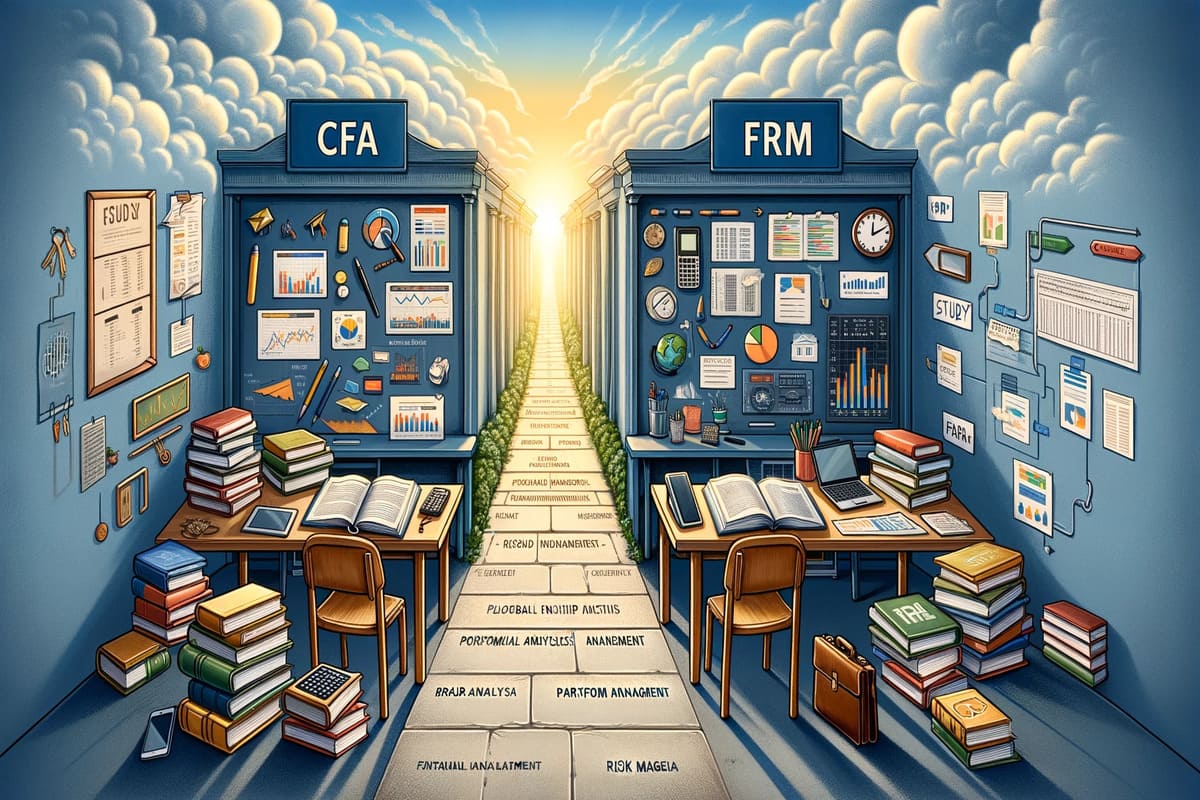How does the CFA Program incorporate current financial market trends and technologies
The CFA (Chartered Financial Analyst) Program is a prestigious professional credential offered worldwide by the CFA Institute to investment and financial professionals. It is designed to equip candidates with a strong foundation in advanced investment analysis and real-world portfolio management skills. A critical aspect of the CFA Program’s appeal and effectiveness is its ability to stay relevant by incorporating current financial market trends and emerging technologies. Here’s how the CFA Program keeps its curriculum up to date and relevant to the industry’s needs:
Continuous Curriculum Update Process
- Industry Consultation: The CFA Institute engages with a broad spectrum of industry professionals, including portfolio managers, investment analysts, chief investment officers, and other financial experts, to gather insights on the evolving landscape of the financial markets. This continuous feedback loop helps in identifying new trends and areas of knowledge that are becoming increasingly important for finance professionals.
- Practice Analysis Survey: Regularly conducted extensive surveys among investment professionals worldwide help to capture the changing skills, tools, and knowledge areas relevant to the current and future needs of the finance industry. The results of these surveys guide the adjustments and updates in the CFA curriculum.
- Learning Outcome Statements (LOS) Adjustment: The CFA Program’s curriculum is structured around Learning Outcome Statements (LOS), which define the knowledge and skills candidates are expected to acquire. These LOS are regularly reviewed and updated to reflect the latest in financial theories, practices, and technologies.
Integration of Current Financial Market Trends
- Global Market Awareness: The curriculum includes comprehensive coverage of global financial markets, incorporating trends like globalization of finance, emerging markets, and international trade dynamics. This global perspective ensures that candidates understand the complexities and interconnections in today’s financial world.
- Ethical and Professional Standards: With the ever-evolving landscape of financial markets, ethical considerations and professional conduct remain at the forefront. The CFA Program continuously updates its emphasis on ethics and professional standards, reflecting the latest regulatory changes, ethical dilemmas, and best practices.
- Asset Management and Personal Planning: In response to the growing complexity of asset management and personal financial planning, the CFA curriculum covers advanced topics in these areas, including new investment vehicles, risk management strategies, and planning methodologies.
Embracing Emerging Technologies
- Fintech Integration: Recognizing the disruptive impact of financial technology, the CFA Program has integrated FinTech into its curriculum, covering areas such as blockchain, cryptocurrencies, artificial intelligence (AI), and machine learning in investment management.
- Data Analysis and Quantitative Techniques: The increasing importance of big data and quantitative analysis in financial decision-making has led to a greater emphasis on statistical methods, data analysis tools, and quantitative modeling in the CFA curriculum.
- Ethical Considerations in AI and Data Science: As technologies like AI become more prevalent in finance, the CFA Program addresses the ethical considerations and governance of using these technologies, ensuring candidates are prepared to use them responsibly.
In summary, the CFA Program remains at the forefront of financial education by systematically incorporating current market trends and emerging technologies into its curriculum. This approach ensures that CFA charterholders are well-equipped with the knowledge and skills necessary to navigate the complex and dynamic world of finance, making them valuable assets to their organizations and the broader financial industry.










